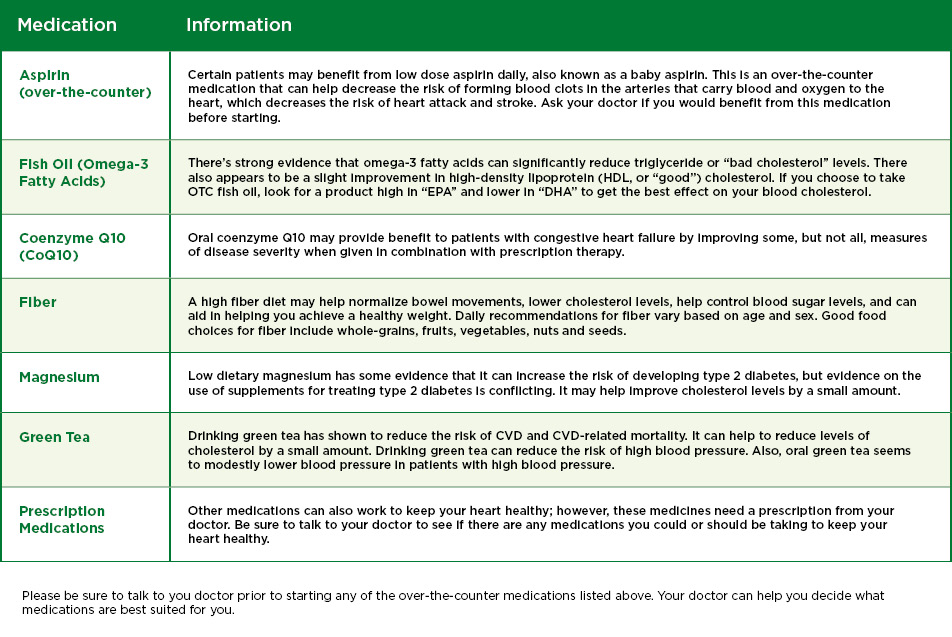
This post was written by Zachary Brown, PharmD, Parkview Health.
February is American Heart Month, an observance dedicated to bringing awareness to the importance of keeping your heart healthy. In this post, we’ll look at some of the high-level ways to keep your heart happy and the medications that could offer some benefit.
Common terms
Cardiovascular disease is the umbrella term that encompasses all types of disease that affect the heart. This term includes other diseases, such as coronary artery disease, peripheral artery disease, stroke, heart failure, and others. Heart disease, which is a term for a subset of cardiovascular conditions that affect the heart’s structure and function, is present in ~11% of Americans. Coronary artery disease, one of the most known types of heart disease, occurs when plaque (a combination of fat, cholesterol, and more) builds up in your arteries. This may also be referred to as atherosclerosis. This plaque buildup decreases the blood flow to vessels that supply blood to the heart, often causing chest pain and even heart attacks.
Prevention
There are a number of ways to prevent cardiovascular disease, including:
- Talk to your primary care provider about your blood pressure, cholesterol and blood sugar.
- Reduce the amount of salt and increase the number of fruits, vegetables and whole grains in your diet.
- Engage in physical activity.
- Maintain a healthy weight.
- Manage stress.
- Stop smoking.
- Keep your diabetes under control (if applicable).
- Take your medications as prescribed by your doctor.
Physical activity
Generally, as little as 60 minutes a week of moderate-intensity aerobic activity, such as walking briskly, helps your heart. For major health benefits, aim for at least 150 minutes (2½ hours) a week, or strive for 75 minutes a week of more vigorous activity, such as playing basketball, running, or jumping rope, which gives the same benefits. Consult your doctor if you are unsure how much physical activity is safe for you.
Being active can help protect your heart (even if you already have heart disease) by improving your blood flow and lowering blood pressure and cholesterol levels. If you’re inactive, you’re nearly twice as likely to develop heart disease than if you’re active.
To stay motivated, try making activity part of your everyday routine. Get your spouse, other family members or friends to be active with you by enrolling in new classes, sharing your fitness goals or committing to a walking schedule together. Do activities you enjoy doing, such as biking, hiking or other outdoor activities.
Set a goal of being active for just 10 minutes to start:
- Walk briskly for 5 minutes, turn around, and walk back.
- Park further away to get more steps in.
Medications
Medications that can help keep your heart healthy are listed below. Be sure to discuss these medications with your doctor or pharmacist prior to starting.

Some medications can also put strain on the heart while trying to treat other problems. See the examples below.

Speak with your primary care provider or cardiologist if you have questions or concerns about your heart health or wellness regimen.
Resources



